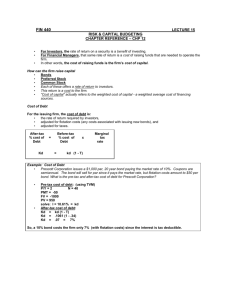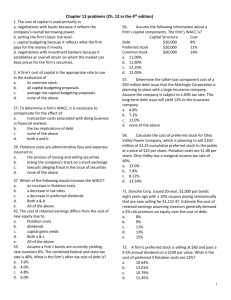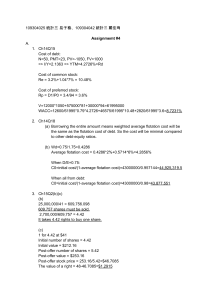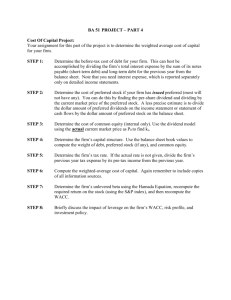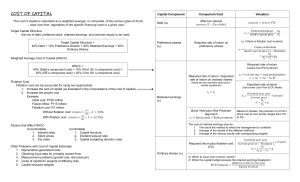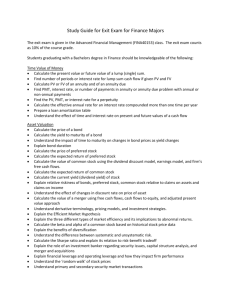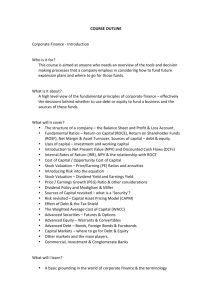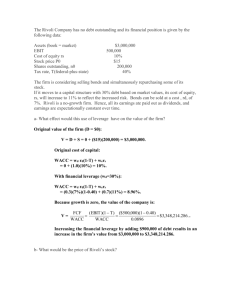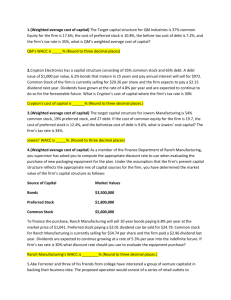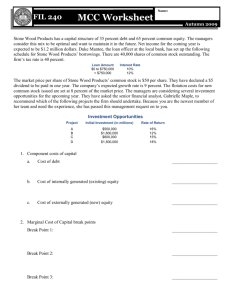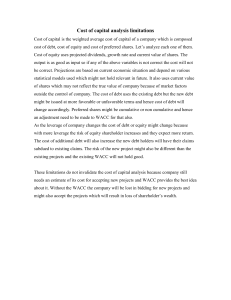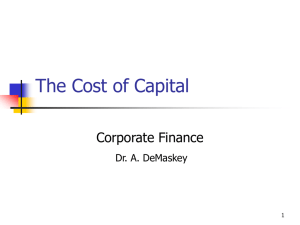Formula sheet Princ of Finance
advertisement
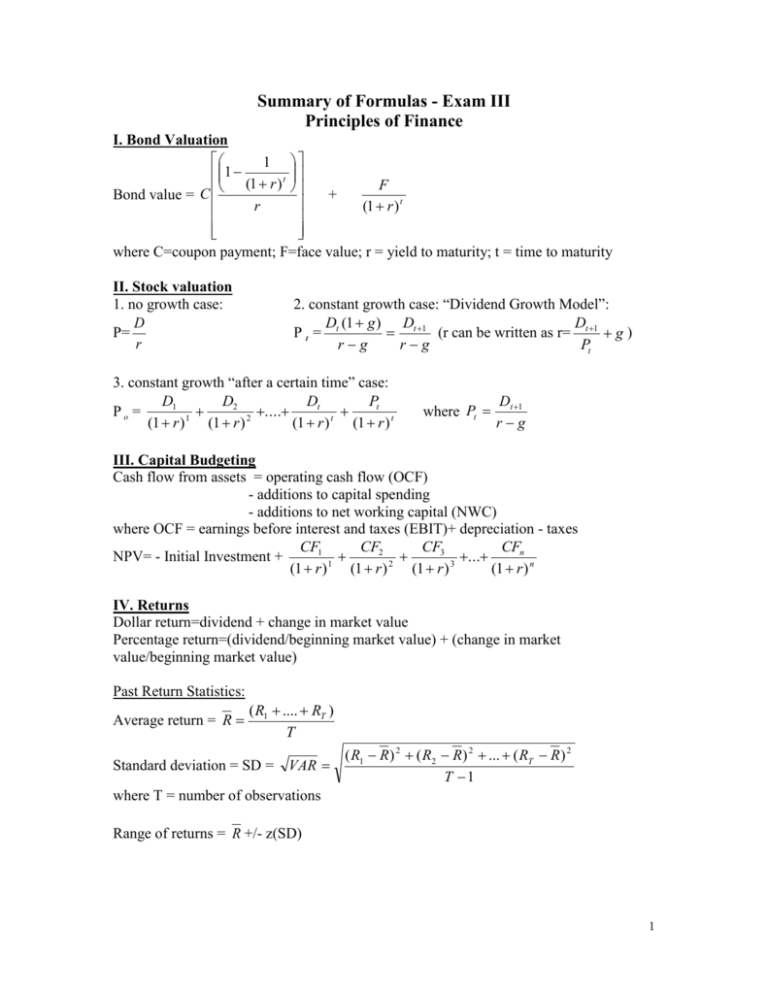
Summary of Formulas - Exam III
Principles of Finance
I. Bond Valuation
1
1
(1 r ) t
F
Bond value = C
+
r
(1 r ) t
where C=coupon payment; F=face value; r = yield to maturity; t = time to maturity
II. Stock valuation
1. no growth case:
D
P=
r
2. constant growth case: “Dividend Growth Model”:
D (1 g ) Dt 1
D
Pt = t
(r can be written as r= t 1 g )
rg
rg
Pt
3. constant growth “after a certain time” case:
D1
D2
Dt
Pt
Po =
....
1
2
t
(1 r )
(1 r )
(1 r )
(1 r ) t
where Pt
Dt 1
rg
III. Capital Budgeting
Cash flow from assets = operating cash flow (OCF)
- additions to capital spending
- additions to net working capital (NWC)
where OCF = earnings before interest and taxes (EBIT)+ depreciation - taxes
CF1
CF2
CF3
CFn
NPV= - Initial Investment +
...
1
2
3
(1 r )
(1 r )
(1 r )
(1 r ) n
IV. Returns
Dollar return=dividend + change in market value
Percentage return=(dividend/beginning market value) + (change in market
value/beginning market value)
Past Return Statistics:
Average return = R
( R1 .... RT )
T
Standard deviation = SD = VAR
( R1 R) 2 ( R2 R) 2 ... ( RT R) 2
T 1
where T = number of observations
Range of returns = R +/- z(SD)
1
Future Return Statistics:
E(RA) = (RA 1) P1 + (RA 2) P2+ ... + (RAT)PT
VAR (RA) = {RA 1- E(RA)} 2 P1 + {RA 2 - E(RA)} 2 P2 + ... + {RAT - E(RA)} 2 PT
SD(RA )= VAR( RA )
VARP = {RP 1- E(RP)} 2 P1 + {RP 2 - E(RP)} 2 P2 + ... + {RPT - E(RP)} 2 x PT
where E (R P)
1,2.... T
P
= expected portfolio return
= states of the economy
= probability of state of economy occurring
IV. Capital Asset Pricing Model (CAPM)
E(Ri) = Rf + i [E(RM ) – Rf]
Where E(Ri) = expected return of security i
Rf = risk-free rate
E(RM ) = expected return of the market
i = security i ’s beta
V. Weighted Average Costs of Capital (WACC)
WACC = (E/V) ( R E ) + (D/V) ( R D ) (1 - T) + (P/V) ( RP )
where R E = cost of equity, E/V=wE = % of firm value financed by equity
R D = cost of debt, D/V = wD = % of firm value financed by debt
R P = cost of preferred stock, P/V= wP= % of firm value financed by pref. stock
T= corporate tax rate
VI. Weighted Average Flotation Cost (f)
f=(E/V) f E + (D/V) fD + (P/V) f P
where f E = flotation costs of equity
fD = flotation costs of debt
f P = flotation costs of preferred stock
cost of project with flotation costs = cost of project without flotation costs / (1- f)
VII. Firm Value (V) with Taxes
VL = V U + (DxT)
VL = [(EBIT x (1-T))/ R U + (DxT)
where L = leveraged, U = unleveraged
VIII. Break-Even EBIT
EPSno debt = EPSwith debt
EBIT/# of sharesno debt = (EBIT-interest)/# of shareswith debt
2
